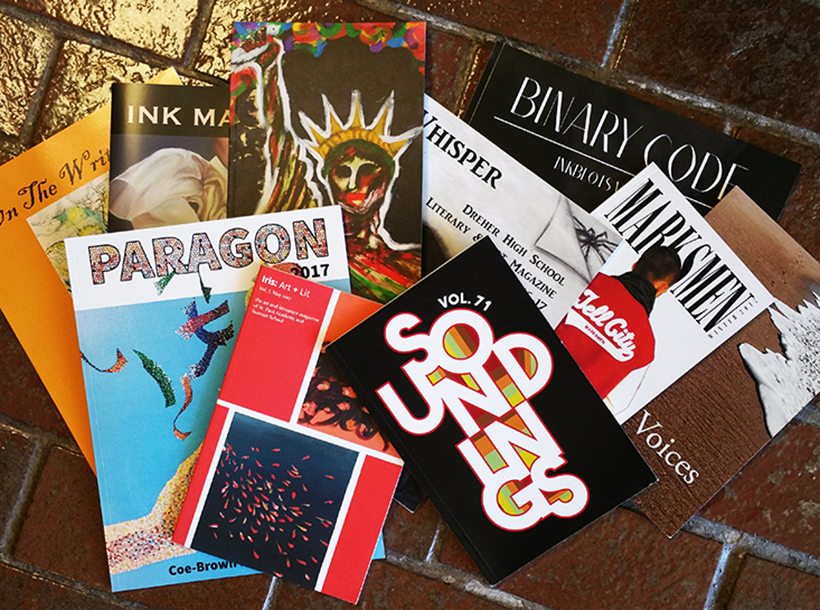Flash fiction, a genre known for its remarkable ability to tell a complete story in so few words, challenges writers and entices readers with its precision and brevity. Defined by its length, flash fiction stories often consist of just a few hundred words, forcing writers to distill their narratives into the purest form of storytelling. This genre tests the writer’s ability to imply a larger story, draw in readers quickly, and leave them satisfied, all within a constrained word count. Flash fiction’s power in cooperation with https://essayhub.com/literature-review-writing-service lies in its compact form and the potent impact it delivers, making every word, every sentence, and every paragraph count.

Overview of ‘Black Paper’: Themes and Style in Kenji Siratori’s Work
“Black Paper” by Kenji Siratori is a quintessential piece of flash fiction that embodies the cyberpunk ethos and dives deep into dystopian themes. Siratori’s style is avant-garde, weaving complex narratives that explore the intersection of technology and humanity. His work often reflects on the darker side of tech-driven futures, where human consciousness merges with digital realities, creating a chaotic yet fascinating landscape. “Black Paper” serves as a vivid example of this, presenting a narrative that is both disorienting and intriguing, with a prose style that mirrors the fragmented, hyper-connected world it depicts. Buy term paper online from EssayPro to delve into creative and literary topics such as Flash Fiction Black Paper by Kenji Siratori. EssayPro offers comprehensive term papers that analyze Siratori’s avant-garde writing style and thematic elements, providing a deep understanding of his work. This service ensures that your term paper is well-researched and eloquently written, perfect for literary studies.

Defining Flash Fiction: Understanding Its Structure and Appeal
Flash fiction is distinguished not only by its length but also by its structure. It demands a beginning, middle, and end, a complete plot, and well-developed characters—all within a tight word limit. This genre appeals to modern readers who crave quick, impactful reads amid their busy lives. Flash fiction stories, such as “Black Paper,” often leave much to the imagination, asking readers to infer and fill in the gaps. This interactive element between the text and the reader adds depth, making each piece a unique experience. The appeal of flash fiction lies in its ability to hint at much larger stories, allowing readers to ponder on the narrative long after they’ve finished reading.

The Craft of Writing Flash Fiction: Techniques and Tips
Writing great flash fiction involves mastering economy of language, clarity, and precision. Authors like Kenji Siratori achieve this through a meticulous choice of words and structures that convey more than they state outright. Techniques include focusing on a single moment or idea, using suggestive language that hints at a larger narrative, and employing vivid imagery to quickly establish mood and setting. Writers of flash fiction often start their stories in the middle of the action to immediately engage the reader, ensuring that every word pulls its weight in advancing the story or deepening the reader’s understanding of the characters and their conflicts.
Analyzing ‘Black Paper’: A Flash Fiction Story Set in Dystopian Cyberspace
“Black Paper” plunges readers into a dystopian cyberspace where the boundaries between biological and digital life blur. Kenji Siratori uses a dense, poetic style to create a disorienting effect that mirrors the complexity of his futuristic world. The story describes a cybernetic organism navigating a post-apocalyptic landscape, emphasizing themes of alienation and identity crisis in a tech-saturated society. Siratori’s use of jarring, fragmented prose pushes the boundaries of traditional narrative structures, reflecting the chaotic energy of the cyber world his characters inhabit.


The Impact of Sudden Fiction on Modern Literature
Sudden fiction, another term for very short stories, has significantly influenced modern literature by challenging authors to express profound ideas in limited spaces. This form of micro fiction encourages experimentation with style and structure, leading to innovative storytelling techniques. Works like “Black Paper” contribute to the genre by pushing narrative and linguistic boundaries, influencing how stories can be told. Sudden fiction’s impact is seen in its popularity and the way it has encouraged a reevaluation of what constitutes a story, encouraging both new writers and established authors to explore the essence of narrative.
How to Write Flash Fiction: Guidance for Aspiring Writers
Aspiring writers interested in flash fiction should start by reading widely in the genre to understand its range and possibilities. Writing flash fiction requires clarity of thought and purpose, every element of the story must be carefully considered and crafted to convey meaning while advancing the plot. Writers should practice conveying scenes and emotions with brevity and suggestiveness, focusing on potent imagery and strong, active verbs. Tools like word constraints can help hone these skills, pushing writers to think creatively about how to tell a story with maximum impact using minimal words.

Exploring Flash Fiction Stories by Kenji Siratori: A Deeper Dive
Exploring the flash fiction stories of Kenji Siratori offers a deep dive into a mind that views the future through a lens of digital existentialism and cybernetic despair. His stories often revolve around the themes of human consciousness interwoven with digital elements, showcasing his unique style that combines dense, technical prose with poetic fluidity. Readers and writers alike can learn from Siratori’s approach to flash fiction, which demonstrates how the genre can be used to explore complex ideas and evoke strong, often unsettling emotional responses. His work challenges us to think about the future of humanity in an increasingly digital world. Through “Black Paper” and other stories, Kenji Siratori has staked a claim in the literary world, showcasing the power of flash fiction to convey complex, cutting-edge ideas within the framework of ultra-brief narrative art. This exploration into his works not only enriches our understanding of the genre but also expands our perception of the potential of literature to reflect and critique the evolving human condition.